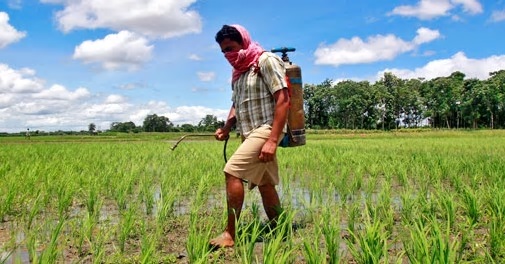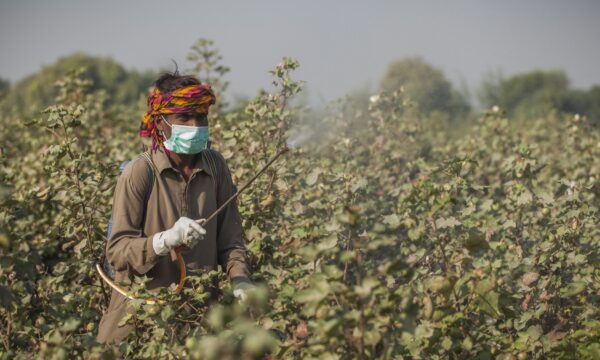
India is among the leading producers of pesticides in Asia. The Insecticides Act 1968 was brought into force with effect from August 1971 with a view of regulating the import, manufacture, sale, transport, distribution and use of insecticides in order to prevent risk to human beings and animals, Dr Malvika Chaudhary writes.
The Central Insecticides Board, established under Section 4 of the Act and working under the Ministry of Agriculture and Farmers’ Welfare, advises the Central Government and State Governments on technical matters arising out of the administration of the Act and to carry out the other functions assigned to it.
The experience in administering this Act over the last five decades has exposed certain gaps which has spurred the need to propose a new law. The Pesticide Management Bill (PMB) has been in discussion since 2008.
The Draft Pesticide Management Bill 2017 was released by the Union Ministry of Agriculture and Farmers Welfare (MoFAW) for stakeholder comments on 19 February 2018. The Pesticides Management Bill 2020 was approved by the Union Cabinet on Wednesday 26 February.
The key features of this Bill centres around pesticide data which will empower farmers by providing them with all the information about the strength and weakness of pesticides, the risk and alternatives. All information will be available openly as data in digital format and in all languages. It will also make them aware about the compensation provision in case there is any loss because of the spurious or low quality of pesticides. Promoting organic agriculture is also a part of this Act and is dedicated to organic pesticide for their promotion. Very significantly, it enforces law for all pesticide manufacturers who have to be compulsorily registered and bound by the new Act. Advertising for pesticides will also be regulated to ensure that they are a fair and accurate description of the product for sale.
Plantwise in India has been making consistent efforts to bring actionable knowledge to farmers on pest management with special focus on Integrated Pest Management practices. Since 2012, the program has made good progress in partnership with the MS Swaminathan Research Foundation (MSSRF).
With the multiple objectives of reaching small holder farmers and making them self-sustainable the Government of India is promoting the concept of Farmer Producer Organizations (FPO) in different states.
Through discussions at national/state level and interest of relevant organizations in linking with programmes like Plantwise, National Agro Foundation (NAF) was identified in 2017 as potential organization to test the piloting of Plantwise components with FPOs. Similarly, other new partnerships were established with International Competence Centre for Organic Agriculture (ICCOA), Syngenta Foundation India (SFI) and National Institute of Agricultural Extension Management (MANAGE).
The purpose of these partnerships was to expand the Plantwise programme components through trainings and establishment of plant clinics in other parts of the country. The enforcement of the Pesticide Management Bill will strengthen the efforts of the program in reducing the use of pesticides and increase the use of safer registered pesticide and organic pesticides.
Related News & Blogs
Joint efforts towards strengthening harmonization in the pesticide regulatory landscape of the Philippines
CABI together with the United States Department of Agriculture (USDA) and the Fertilizer and Pesticide Authority (FPA) of the Philippines have produced working manuals to help strengthen harmonization of the pesticide landscape in the Philippines. The…
23 May 2025




